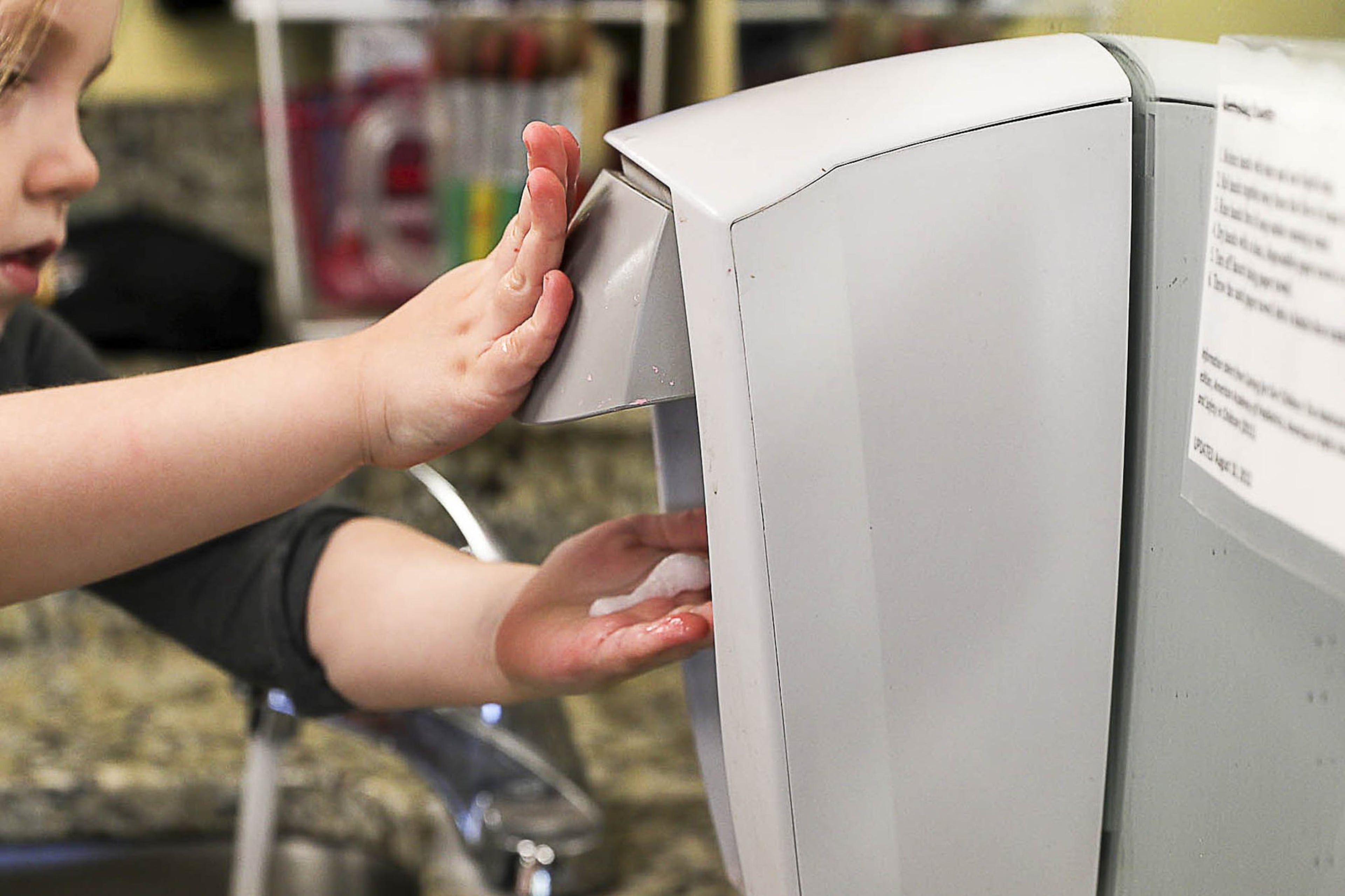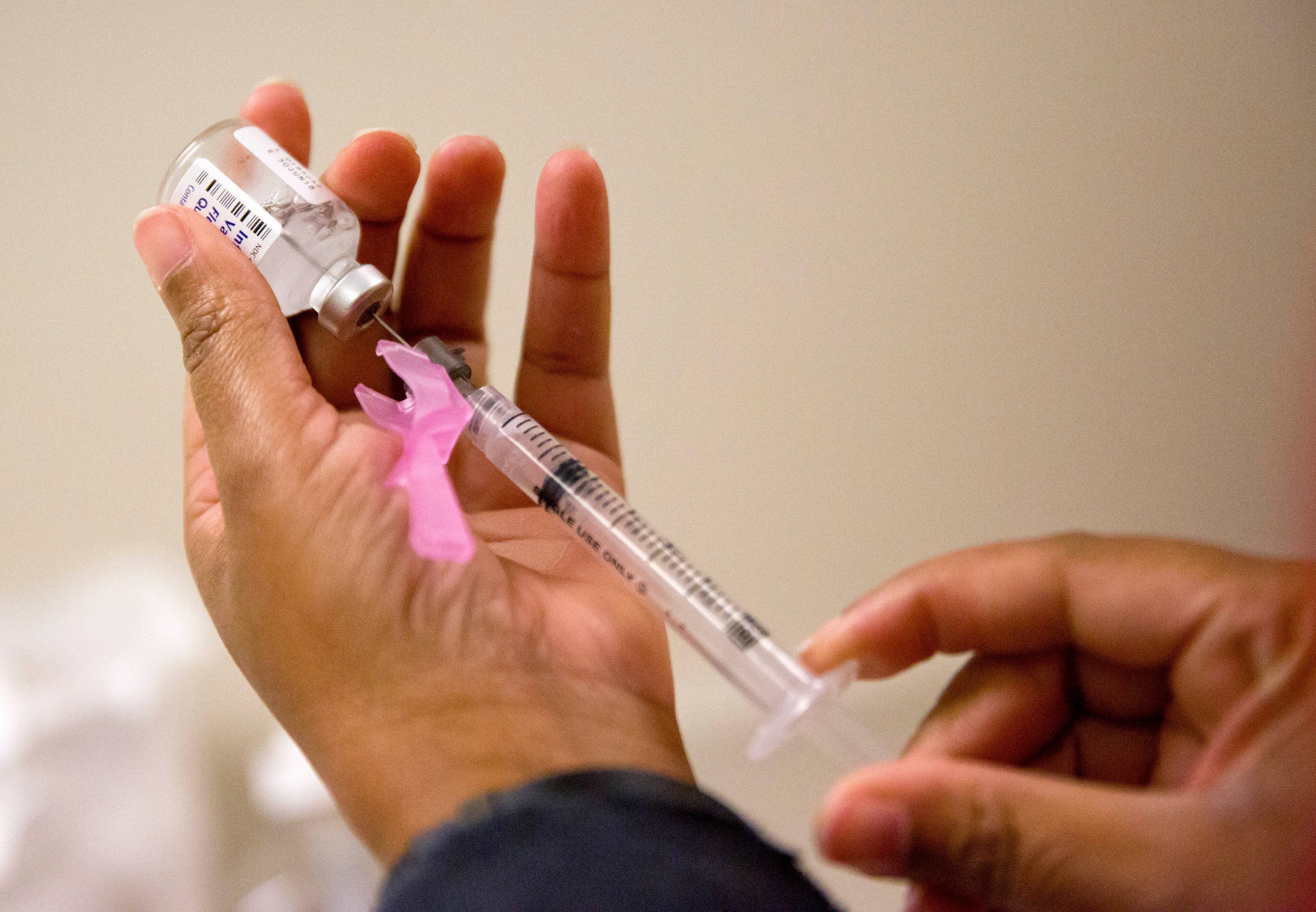Flu activity across Georgia on the rise
Flu activity continues to be on the rise in Georgia, and health officials urge caution over the holidays, and recommend everyone get their flu shot if they haven’t done so already.
The Georgia Department of Public Health said 5.3 percent of patient visits to doctors were for the flu during the week ending Dec. 15, up from 4 percent of visits the week before, according to the most recent report available.
Before Christmas, schools, churches, dance studios and offices throughout Atlanta have been encouraging people to stay home if they have the flu. Concerns about the flu are well-founded. Since flu season began in early October, the illness has killed four people in Georgia — three adults and a child — and there have been 259 hospitalizations in metro Atlanta due to flu symptoms.

In the most recent data set from the Weekly U.S. Influenza Surveillance Report, compiled by the Centers for Disease Control and Prevention, Georgia was the only one of two states (Colorado was the other state) listed as experiencing high levels of influenza-like illness.
Georgia’s 2017 flu season didn’t actually subside until the end of April. It claimed 145 lives statewide and led to more than 3,000 hospitalizations in metro Atlanta. Local health officials called it the worst outbreak in decades. The previous year saw nine flu-related deaths in Georgia.
So far this season, H3N2, a form of influenza A, is more prevalent in Georgia. It is a more severe strain that can be particularly dangerous for the very young, the elderly and expectant mothers. The strain H1N1 is more prevalent nationally.

It is too early to say which demographic group in Georgia has been most affected. Flu activity is always unpredictable, it’s also hard to say why the state was so battered last year.
Holiday breaks can be both good and bad for flu.
On the one hand, holiday celebrations bring travelers together, so the chance for flu to spread is greater, especially among those didn’t get a flu shot, according to Dr. Andi Shane, medical director of hospital epidemiology at Children’s Healthcare of Atlanta.
At the same time, the holiday break can be a good time to rest and recuperate for those who may be ill. Shane said it’s also a good time to get a flu shot for those who haven’t already.
MORE: Tips to prevent the flu
“It was January last year when the flu was so bad and many people were sick, and many of them were hospitalized. It takes about two weeks after vaccination for antibodies that protect against flu to develop in the body,” said Nancy Nydam, spokewoman for the state Department of Public Health, in an e-mail.
Each year, 5 percent to 20 percent of the U.S. population gets the flu, tens of thousands are hospitalized and thousands die from flu-related illness. It costs an estimated $10.4 billion a year in direct medical expenses and an additional $16.3 billion in lost earnings annually, according to the CDC.
MORE: Many schools grappling with more flu cases
About half of Americans get annual flu shots. In recent years, flu vaccination rates have been on the rise, particularly among children, and now stand at about 60 percent for children and about 42 percent for adults.
People should always practice good health hygiene, but it is particularly important now with flu circulating and friends and family in close contact with each other over the holidays, or others who are traveling, according to the Georgia Department of Public Health. It’s important to wash hands thoroughly. Alcohol-based hand sanitizers can help if you don’t have access to soap and water. Cover your nose and mouth when you cough or sneeze or turn your head into your elbow.

Children’s Healthcare of Atlanta provides the following tips about the flu:
Get the flu shot. Children's is seeing higher rates of flu infection, but it's still not too late to get a flu vaccine. Even if a flu vaccine does not completely protect your child from having the flu, vaccinated people have fewer days of symptoms, less severe symptoms and are less likely to need medical care.
Hand hygiene should be practiced by everyone. You can prevent the spread of flu by practicing good hygiene – washing your and your child's hands frequently, especially after coughing or sneezing. You can also use an alcohol-based sanitizer to keep hands clean.
Stay home when sick. To reduce the spread of flu infections in the community, stay home from work or school when ill.
The Centers for Disease Control and Prevention recommends that you stay home for at least 24 hours after your fever is gone (except to get medical care or other necessities). Your fever should be gone for at least 24 hours without the use of a fever-reducing medicine, such as Tylenol. You should stay home from work, school, travel, shopping, social events, and public gatherings.
MORE: When can you go back to work or school if you have the flu?
- Eric Stirgus and Shelia M. Poole contributed to this article.


